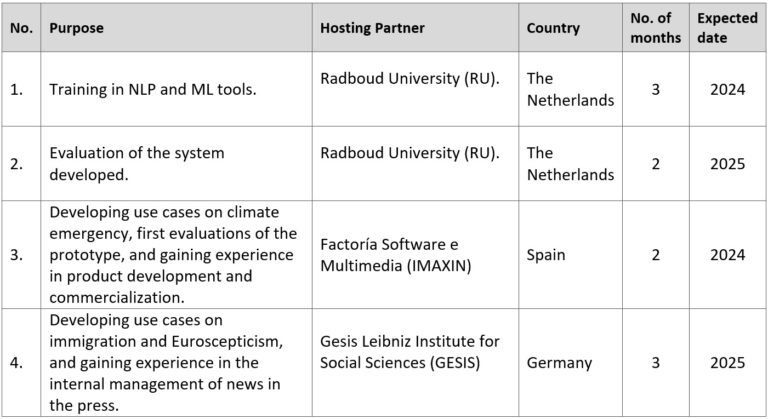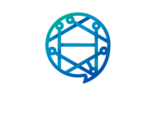DC10: Detecting harassment on social media beyond isolated messages
Open Doctoral Candidate/PhD Position at University of A Coruña (UDC), Spain, for the HYBRIDS project
Reference number: HYBRIDS- DC10
PhD research topic: Detecting harassment on social media beyond isolated messages
Host institution: Universidad de A Coruña (UDC).
PhD Enrolment: Universidad de A Coruña (UDC).
Main Supervisor: Dr. Javier Parapar, Universidad de A Coruña (UDC), javier.parapar@udc.es
Co-supervisor:
- Dr. Nelleke Oostdijk, Radboud University (RU).
- Dr. Claudia Wagner, Gesis Leibniz Institute for Social Sciences (GESIS)
Inter-sectoral Supervisors: Dr. José Ramon Pichel, Factoría Software e Multimedia (IMAXIN)
Objectives:
- Detection of online messages in which people are threatened.
- To develop an approach which goes beyond single (isolated) messages (e.g. tweets) by including both previous messages by the same user and the conversational/interactional context in which a message is produced; the broader context that is provided should allow for resolving many of the interpretation problems that arise when messages are considered in isolation.
- Multiple languages will be targeted so as to demonstrate the viability of the approach.
Expected outcomes:
- Development of a tool to detect threats to people in Twitter by considering large contextual scenarios.
- Building training material by making use of weak supervision methods.
- Methodology and tool validation in use cases on immigrants and women.
Planned secondments:

Eligibility Criteria:
- Mobility: At the time of recruitment, the researcher must not have resided or carried out his/her main activity (work, studies, etc.) in Spain for more than 12 months in the 36 months immediately before the recruitment date. Time spent as part of a procedure for obtaining refugee status under the Geneva Convention or compulsory national service are not taken into account.
- The candidate must be at the date of recruitment a doctoral candidate (i.e. not already in possession of doctoral degree). Researchers who have successfully defended their doctoral thesis but who have not yet formally been awarded the doctoral degree will not be considered eligible.
- The candidate must agree to work exclusively for the action.
- Degree: Master’s degree from a research university in the field of Software Engineering, Computer Science, Computation, Mathematics (machine learning approaches) or similar fields.
- Programming skills: Knowledge of massive programming languages like Java and web-based/API-based programming frameworks and environments.
- Language: Excellent command of English, together with good academic writing and presentation skills.
Desirable skills:
- Motivation and sensibility for social applications of technology, especially harassment or similar threats.
- Able to work independently and flexibly, taking initiative where required;
- Able to communicate and collaborate effectively in a team setting
- Knowledge of scripting programming languages such as R or Python, and experience in natural language processing/text mining and/or social networks API are not required, but valuable.
Contract: Full-time contract
Duration: 36 months, including 4 secondments of 2/3 months each, at other consortium members’ premises (see Secondment section)
Salary: Gross salary of 2,671 €/month (12 payments per year) if the researcher has no family or 3,027 €/month (12 payments per year) if the researcher is married (or a relationship with equivalent status to a marriage recognised by the legislation of the country where this relationship was formalised) or has dependent children for the purposes of the MSCA (For more information, click here).
Salary includes medical care coverage and work accident insurance through the Spanish Health Care System, providing access to the Spanish public health care system for candidates, as well as pension and unemployment benefits.
Application Documents:
- Europass CV (template available in the following link), including the names and contact details of two academic references, in English, highlighting the merits that are established as evaluation criteria;
- Scans of Bachelor’s and Master’s transcripts, with certified translation in English (if the degree qualification is not in English); If you have not yet completed your master’s, you must submit a provisional academic transcript.
- A motivation letter in English, highlighting the consistency between your profile and the chosen DC position/s for which you are applying and describing why you wish to be aHYBRIDS Doctoral Candidate to carry out a PhD; (max. 700 words)
- Scanned copy of your ID card, resident’s card or passport currently in force;
- Proof of excellent command of English (e.g., IELTS, TOEFL, Cambridge or equivalent). This is not required in case you are a native English speaker (i.e., English is your mother tongue).
In addition, you can add any other documents which you find relevant for the applications such as Master thesis, publications or project reports.
Evaluation criteria:
- Academic background (up to 40 points)
- Knowledge and specific achievements (up to 35 points)
- Shortlisted candidates will be invited for an interview in which the selection committee will assess the applicant’s communication skills, initiative, and motivation to pursue a PhD. (up to 25 points)
Deadline: April 26, 2023, at 23h59 CET (UCT + 01:00)

CLOSED
Candidates are encouraged to contact the HYBRIDS Project Manager (info@hybridsproject.eu) for assistance or for any information related to the application process. When contacting, please indicate the position reference in the subject line.
Enquiries about research content must be sent to the main PhD supervisor via email (see contact details in Supervisors section).
